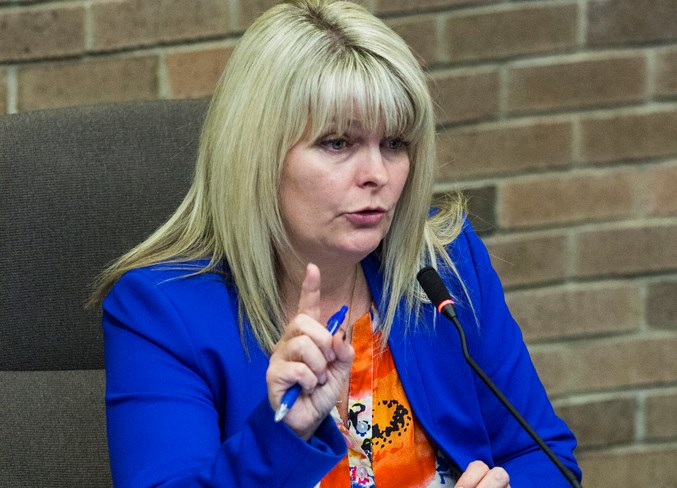St. Albert can expect to pay 5.7 per cent more in education property taxes on residential properties this year, council heard at a 2024 provincial budget analysis meeting on Tuesday.
The education property tax is added to regular property taxes but is collected by the province to support K-12 schools.
The average education property tax increase for municipalities across Alberta was 9.2 per cent, council heard. In St. Albert, education property taxes on non-residential buildings are projected to rise by 1 per cent.
“I don’t even know how we’re going to look at addressing that,” said Coun. Ken MacKay, regarding the difficulty of conveying to residents that the tax is dictated by the province, not the city.
Mayor Cathy Heron suggested that St. Albert, along with some other mid-sized cities, could advocate to keep a portion of the tax. Last year the city paid roughly $36 million, and it will see an increase of roughly $2 million in 2024.
The tax increase wasn’t the only tough news councillors heard from a panel of budget analysts.
Less capital funding overall, combined with “sustained operational funding cuts” have contributed to “a growing infrastructure deficit,” said Monty Killoh, the city’s advisor on government relations.
“[The city] will require future decisions around the use of debt financing, as well as potential for future service reductions, higher municipal taxes and/or diversifying the tax base and growing in a more revenue positive development pattern,” Killoh said.
Because the province is keeping more fine revenue, paying less for provincial properties located in St. Albert and billing municipalities for RCMP DNA analysis, the city’s annual revenue will be cut by about $700,000.
The city will also need to find an additional $8 million for Ray Gibbon Drive to match the province’s $35 million investment in the project. The price of the continued twinning work on Ray Gibbon Drive, which began in 2020, has increased primarily due to higher labour and material costs. However, a portion of the $8 million price tag was already allocated for the project. In total, Ray Gibbon Drive will cost $70 million, and its third phase will begin next year.
A railway crossing along Ray Gibbon Drive will be at-grade instead of separated by a tunnel or overpass, holding up traffic when trains pass through, council heard. Traffic volumes didn’t warrant a separate crossing.
Residents of the Cherot development on the city’s far west end will continue to wait on road access improvements such as pavement work and curbing. Road surface work isn’t anticipated to commence until possibly 2027.
“It's not the answer I was hoping for, magically,” said Coun. Mike Killick. “But if that is the answer, at least we can be clear with residents and manage people's expectations.”
Coun. Sheena Hughes acknowledged that the provincial budget didn’t cause “massive decreases” to St. Albert’s budget. However, funding hits have a real impact on “[the city’s] ability to get things done.”
“The province will not exist if people do not live in municipalities, and they expect to have certain provisions given to them in municipalities to be able to enjoy living in Alberta,” she said.
But it wasn’t all tax hikes and budget deficits at the meeting.
Council celebrated the $35 million in provincial funding for Ray Gibbon Drive, which was more than the city expected.
They also acknowledged the $50 million in provincial funding for an expansion to the ARROW utilities sewage treatment plant, which manages wastewater for St. Albert and 13 other municipalities. The expansion is projected to cost $166 million, and the province’s contribution will offset utility rate increases.
Along with potential changes to the education property tax, a new Local Growth and Sustainability Grant Program for infrastructure projects and provincial funding for affordable housing could help the city get some money back from the province, council heard.




